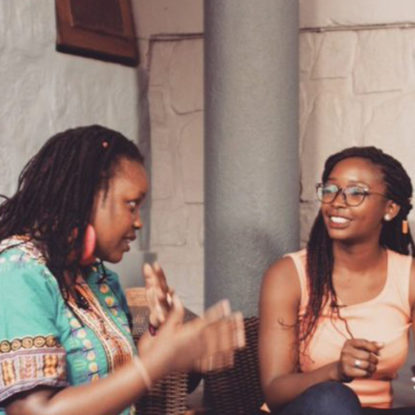Something for Something Love

“how quiet can we make this woman?
misogyny”~ Ijeoma Umebinyuo
I was a little shy of 18 when I got my first job outside home. I remember getting lost on the way to the interview, walking around in the sweltering heat until my shirt stuck to my back. When I finally made it to the place, the boss only asked one or two questions before giving me a tour of the place. There was no contract; and the job description changed according to how the day went. I was hired as a cashier but I also organized shelves, made burgers, waited tables, scooped ice cream, and helped customers pick out items. Despite the 12 hour shifts and the measly pay, I enjoyed working at that job. I enjoyed earning my own money and every month I received it with glee. Even as I dread Monday mornings today, I am grateful for an opportunity to put in an honest day’s work every day.
A Senior State Attorney in the Ministry of Justice, Miss Samantha Mwesigye recently came out to say that she has been suffering sexual harassment at the hands of her boss, Christopher Gashirabake. In a media interview, she complained of unwanted sexual advances, of being treated unfairly at work because she refused him, of being humiliated before her colleagues, and of being ignored when she reported the matter. The story felt very personal – I remember the joy of getting my hands into actual legal work when I did my clerkship and when I started my job. I can only imagine how traumatic it has been for Samantha, to have the joy of work sucked away by the constant abhorrent behavior of Gashirabake.
Professor Sylvia Tamale in a talk I attended grouped sexual harassment in two types. The first is quid pro quo sexual harassment or to borrow a terribly chosen term that we are familiar with “something for something love”. This is where a person in a position of authority requests for sexual favours in return for preferential treatment, or threatens poor treatment if the victim does not give in.
The second type of harassment is environmental, when the workplace is poisoned with inappropriately sexual written or spoken language like unwelcome verbal advances, sexual oriented comments, request for sexual favours, jokes of a sexual nature, offensive flirtation or obscene expressions of sexual interest, or a display of sexually suggestive visual materials. The most common environmental form of sexual harassment womxn often endure is unwanted and unwelcome touching, patting, pinching and the like (most womxn have given a man a handshake that involved that disgusting scratch).
Now, sexual harassment is not determined according to the intentions of the harasser – and saying you were only joking does not negate the act. If the victim finds the behavior to be unwelcome or offensive and it has a detrimental effect on their employment, job performance or job satisfaction, then that qualifies as sexual harassment.
One of the questions asked by the first interviewer to talk to Miss Mwesigye asked her if she had “given in”. The phrasing of this question appears to assume that sexual harassment is about attraction and sex, that the abuser is so taken with their employee, or that the victim has dressed or behaved in a way to “seduce” their abuser. Sexual harassment is not about sex or attraction. Professor Tamale places sexual harassment on the spectrum of gender based violence against womxn that includes street harassment, groping, domestic violence, and sexual assault.
Womxn have worked in and outside of their homes since time immemorial. The myth of the womxn who stays at home doing nothing is laughable to me. Since men rarely take on work within the home, they are thought of as belonging in the public spaces like offices, streets, etc. Men are the default idea of a doctor, engineer, trader, lawyer, or accountant.
Sexual harassment is a gendered type of bullying that serves to push womxn out of public spaces into the “private” spaces where they “belong.” That is why many more womxn suffer it than men. When a man brings sexual comments or requests into a professional environment, especially if they are in a position of power over you, they are reducing you to a sex object, negating the contribution you make to the space you occupy.
Womxn are making invaluable contributions to our society, in all the places that they have been routinely told they don’t belong: science, law, politics, journalism, to mention but a few. It is our duty to make the work spaces they occupy against so many odds as safe as possible. The law has prescribed structures, like the requirement for a sexual harassment policy and committee to investigate complaints. We must push for their establishment at work places, especially public offices like the Ministry of Justice, which had no such structures until February 2019, 10 years after it drafted the law governing this issue.
It is also important that victims of sexual harassment receive support as they go through the harrowing and re-traumatising process of seeking justice. Perpetrators of sexual harassment must also face the consequences of their behavior publically.
As womxn, we deserve to work and earn a living, to carry out whatever trade or profession we have chosen without being dehumanized and demeaned at work.











